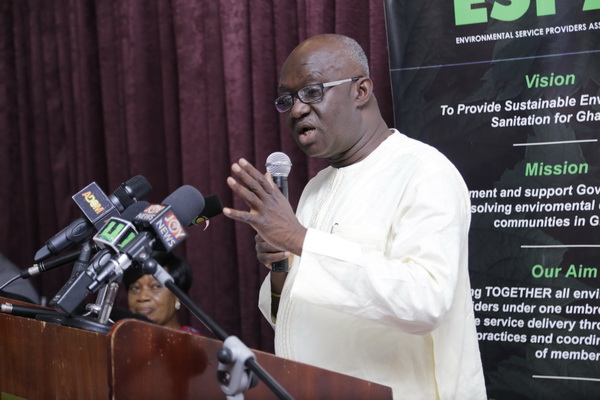
Resource environmental service providers to deliver
Among the many effects of population growth and urbanisation is the increase in the consumption of food, water, energy and land, which in turn results in a rise in industrial and domestic waste, as well as water, air and land pollution, which consequently affects the health and quality of life of the people.
It is this reality, and the recognition that the private sector can play a significant role in improving environmental sanitation through solid waste management, that has given rise to the involvement of the private sector in solid waste disposal.
It is also based on the acknowledgement that improper management of waste from households and industries can cause serious health hazards that could lead to ill health. The serious effects that poor waste disposal can have on the environment and the population have prompted the UN to attach great importance to how nations can have clean environments to safeguard the health of the populace.
This, among others, has culminated in the UN listing universal access to sanitation as one of the 17 global goals that make up the 2030 Agenda for Sustainable Development.
In Ghana, as elsewhere, waste management has become one of the most challenging issues to deal with currently. Volumes of waste generated in the urban centres cannot be collected. The dire situation brought in its wake the decision to involve the private sector in the clearing of waste.
In spite of the effort by both the government and private waste collectors to deal with the filth, waste is seen all over the cities and we throw our hands up in despair because we are overwhelmed by the increasing filth that has engulfed us.
But the reason for our failure to deal with the waste and filth menace is not difficult to fathom. From the government, through the metropolitan, municipal and district assemblies (MMDAs), right down to the citizenry, we have all contributed to the current state through our acts of omission and commission.
The lack of political will to enforce bye-laws on sanitation by the MMDAs, inadequate waste infrastructure, the negative attitudes of the public towards the environment, inadequate equipment and operational funds to support waste management activities, among others, are a few of the reasons we find ourselves in this quagmire.
The Daily Graphic, therefore, encourages all citizens and agencies in charge of ensuring that our towns and cities are kept clean to endeavour to play their part to ensure an environment free from filth which will consequently lead to improved health for the people.
In this connection, we regret to learn that environmental services providers in the country are owed to the tune of about GHc700 million. This was made known in Accra yesterday at the second annual general meeting of the Environmental Service Providers Association.
Nobody will dispute the needed urgency with which the country should address the sanitation challenge, and against this backdrop, we support the call on the government to make efforts to settle its indebtedness to the service providers.
We also add our voice to the call on the government to come up with a legislative instrument to establish a legal authority to disburse the money accrued from the taxes on plastics and also for the effective implementation of the National Environment and Sanitation Policy.
Ghana cannot afford to live in filth perpetually. We should, therefore, marshal all resources at our disposal to deal with the menace.
